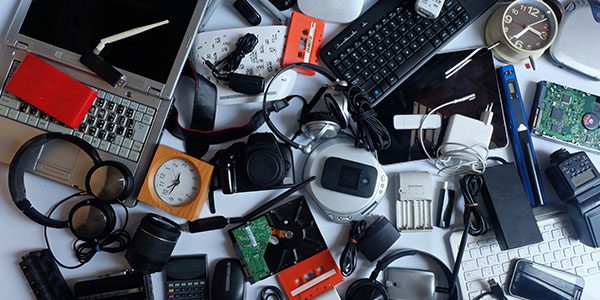Master the Needs of R2 Certification to Ensure Sustainable Business Practices
Ensuring lasting business methods has actually come to be a foundation of company obligation in today's worldwide landscape. At the forefront of this activity is the R2 qualification, an extensive criterion that establishes the bar high for electronics recyclers and refurbishers. As businesses strive to straighten with eco mindful practices, grasping the requirements of R2 certification is paramount. By sticking to these requirements, business not just strengthen their ecological integrity yet likewise get a competitive side in an increasingly eco-conscious market. The roadmap to attaining R2 accreditation is diverse, including a deep understanding of key parts, meticulous steps towards compliance, and a commitment to recurring upkeep. In a world where sustainability is no more a simple buzzword yet an organization necessary, delving into the complexities of R2 qualification is a tactical action that can lead the way for lasting success and positive environmental impact.
Value of R2 Qualification
Attaining R2 Accreditation is important for companies aiming to demonstrate their dedication to sustainable and accountable electronic waste management practices. This accreditation, developed by SERI (Sustainable Electronics Recycling International), establishes the standard for responsible reusing methods in the electronics industry. By getting R2 Certification, organizations signal to their stakeholders that they comply with rigid environmental, wellness, and safety and security regulations while handling electronic waste.
Among the essential reasons R2 Qualification is very important is its emphasis on sustainability. With electronic waste being a substantial global issue, organizations need to display their dedication to minimizing the ecological impact of their procedures. R2 Accreditation requires companies to implement procedures that make certain the correct handling, refurbishment, and recycling of electronic waste, thus adding to the round economy and decreasing the build-up of e-waste in landfills.
Additionally, R2 Accreditation improves a firm's reputation and integrity. In today's eco conscious market, companions and customers are increasingly aiming to work together with businesses that focus on sustainability. By accomplishing R2 Certification, business can distinguish themselves as leaders in responsible e-waste management, acquiring an affordable edge and bring in similar stakeholders.
Key Components of R2 Standards

Steps to Acquire R2 Qualification
To qualify for R2 Qualification, organizations should thoroughly demonstrate compliance with a set of stringent requirements and standards. The procedure of getting R2 advice Qualification includes a number of essential steps.
Next, businesses need to assess their current methods and procedures to identify any spaces that need to be resolved to meet the R2 Standard. This might involve applying new treatments, buying training programs, or making modifications to existing operations. When any type of shortages are fixed, organizations can continue to create a comprehensive monitoring system that aligns with the R2 demands.
Following the application of the necessary adjustments, businesses should undergo a third-party audit to verify their conformity with the R2 Standard (r2 certification). This audit is conducted by an approved certification body and consists of a thorough review of the company's centers, check here treatments, and documentation. Upon successful conclusion of the audit, organizations can get their R2 Qualification, demonstrating their commitment to accountable and sustainable business practices
Advantages of R2 Compliance
Companies that adhere to R2 compliance criteria can unlock a myriad of benefits in today's sustainable company landscape. In addition, R2 compliance advertises ecological sustainability by making certain that electronic waste is managed in an eco pleasant way, lowering the impact on garbage dumps and all-natural sources. Overall, achieving R2 compliance not just helps services fulfill regulative demands however additionally cultivates a culture of environmental duty and operational excellence.
Maintaining R2 Qualification
Showing a continued dedication to responsible digital waste management techniques, organizations need to concentrate on the precise process of maintaining R2 qualification. Maintaining R2 accreditation entails routine audits, interior testimonials, and continuous renovation efforts to ensure conformity with the strict needs set forth by the Liable Recycling Practices (R2) standard. Organizations needs to stay vigilant in checking their electronic waste monitoring processes, data protection procedures, and overall ecological performance to promote Learn More Here their R2 qualification status.
Routine training and education for staff members are necessary to keep R2 accreditation, as personnel need to be educated regarding the most recent finest practices and industry criteria. Keeping thorough documents and paperwork of digital waste recycling activities, downstream suppliers, and internal procedures is critical for demonstrating conformity throughout audits.
Additionally, organizations ought to proactively engage with their supply chain companions and suppliers to ensure that all entities entailed in the digital waste administration procedure comply with R2 standards. By fostering a culture of transparency, responsibility, and continual enhancement, companies can successfully maintain their R2 certification and support their dedication to lasting company practices.
Final Thought

Accomplishing R2 Certification is vital for businesses aiming to demonstrate their commitment to accountable and sustainable electronic waste administration practices. By acquiring R2 Qualification, companies signal to their stakeholders that they adhere to rigid ecological, wellness, and safety and security laws while taking care of electronic waste.
Upon successful conclusion of the audit, services can get their R2 Certification, demonstrating their commitment to accountable and lasting service techniques.
Keeping R2 accreditation includes normal audits, internal evaluations, and continual enhancement initiatives to guarantee compliance with the rigorous needs set forth by the Liable Recycling Practices (R2) criterion. By recognizing the essential parts of R2 requirements, taking the necessary actions to get certification, and enjoying the benefits of R2 compliance, companies can demonstrate their commitment to accountable digital waste monitoring.